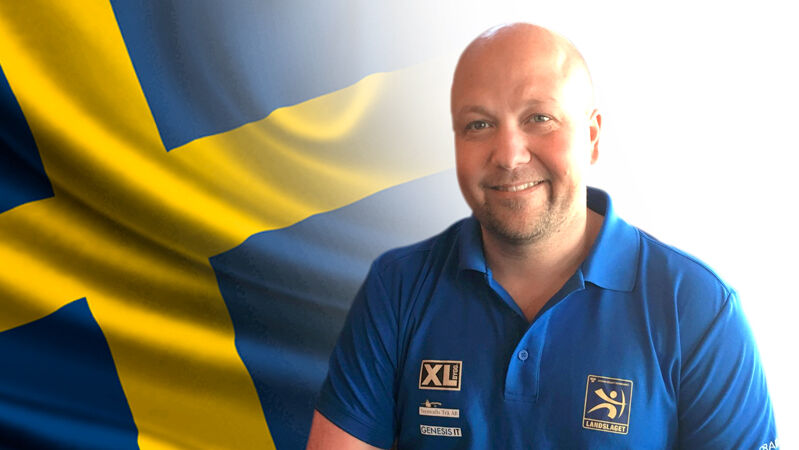Petersson: Back for another Olympic run in Rio?

Interview by Thomas Aubert.
At his first Olympic Games in 1996 in Atlanta, 21-year-old Magnus Petersson, converted a seventh-place in the ranking round into a silver medal, upsetting Korea’s Jang Yong-Ho and Oh Kyo-Moon in the process. Petersson finally fell to Justin Huish of the USA in the gold final.
“A lot of people say that I lost the gold medal, but for me it’s always been about winning the silver,” reminisces Petersson, a full two decades later at the 2016 European Grand Prix in Sofia, Bulgaria.
“It’s given me a lot of good things in life. Not much money, but good experiences and a whole lot of friends in the world!”
Petersson returned for the Sydney Games four years later and made the final four for the second time in a row. Unfortunately, consecutive matches against Vic Wunderle and Wietse van Alten resulted in a fourth place, just off the podium, but Petersson, who had recently become the first male archer to win the World Archery Indoor Championships twice (1995 and 1999), proved his Olympic debut was no fluke.
Appearances at the Games in 2004 and 2008 were not quite as successful, even after he qualified for Beijing as European Champion, as Magnus advanced no further than the second round at each.
“With time, memories fade, but the whole Olympic organisation is something unique. My first Olympics, I got the silver medal. That, of course, makes every memory from Atlanta a good memory,” he says. “But the other three Olympics have been good, too.”
“It’s very fun and exciting and a nerve-wracking competition. It’s kind of all or nothing.”
And though over the course of Magnus’ archery career, he’s seen the competition evolve from the Grand FITA, through the head-to-heads and now into the set system, Magnus’ competitive spirit is as alive as ever. He’s back on the competition field in Sofia, ready for another run at the Games.
Magnus actually returned to competition in advance of the London Olympics, having not shot internationally since 2008, but failed to qualify a space. (Although he did manage a top 10 finish at the Europeans in ’12.)
This time around, for Rio 2016, he’s determined to give it another try.
“There are two chances left to get spots,” he explains, referring to the European Championships in Nottingham and the final qualifier in Antalya and saying that he’s been attending team training camps.
Sweden won no places to the Rio Games at the main quailification tournament in Copenhagen in 2015.
“I will be in Antalya for sure. In Great Britain, I don’t know. It depends on my job,” says Magnus.
While not on the shooting line, Magnus has spent time on the traditional family things, he says: “Buying a house, fixing the house, selling the house and getting a new one”. Oh, and he’s also advanced his working career, too. Now CEO of a hotel and conference centre in Sweden, he’s leading the company through a renovation which will triple it in size.
The Swede’s been keeping one eye on the competition he‘d face on his return, though.
“The biggest change for me is not at the peak of the pyramid. The points haven’t increased that much in the elite, but there is less difference between the absolute elite and those coming up. The level of the competition is getting much tighter,” he says.
It’s the same picture in Sweden, according to Magnus, who explains that he thought archery in the country was on the downturn for a while. Now, though, there’s an influx of talent, more shooters than ever and the sport is progressing.
“It‘s more fun now than before,” Magnus adds.
“The whole archery community is still fantastic. I don’t know to give back what’s been given to me. Hopefully I can give the juniors and upcoming shooters perspective of what they are about, of winning, not only medals but experience.”
One of only two Swedish Olympic medallists in archery, Magnus certainly has experience. What’s more, this friendly, relaxed and mild-mannered man has the track record of an elite competitor that’s performed under the highest pressure and for the biggest prize in sport.
“A chance of getting to a fifth Olympic Games would be absolutely fantastic,” admits Magnus. “So I will give it all I have – in between work – to get there.”









